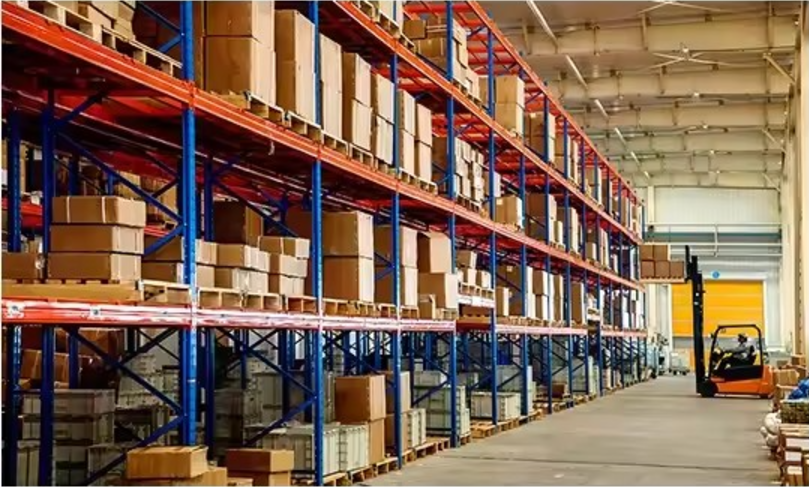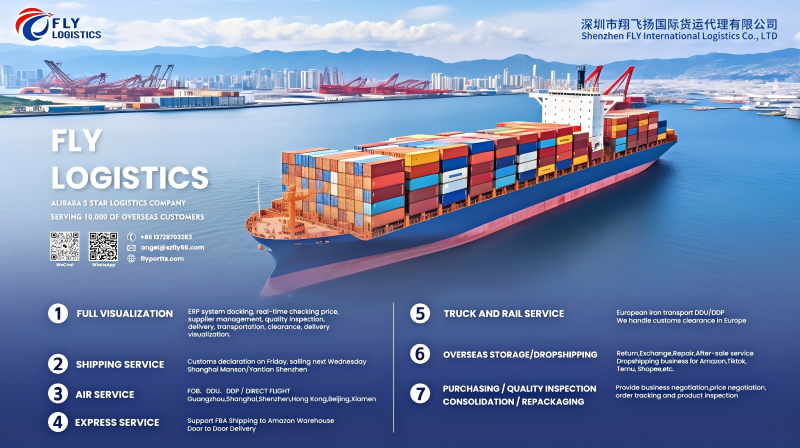Choosing the right freight forwarder is a crucial decision for businesses engaged in international or domestic shipping. A freight forwarder is not just a transporter of goods but a partner in managing logistics, ensuring regulatory compliance, and optimizing supply chain operations. In this guide, we’ll explore the key factors to consider, the questions to ask, and the red flags to watch out for when selecting a freight forwarding partner.
Understand Your Shipping Profile
Before reaching out to any freight forwarder, it’s important to define your own shipping needs clearly. This step is essential because not all freight forwarders offer the same capabilities, and knowing your requirements helps match you with the right partner.
Ask yourself the following:
-
What are you shipping?
Are your goods perishable, fragile, oversized, hazardous, or standard general cargo? -
Where are you shipping to and from?
Are your routes domestic or international? Are you operating within a specific trade corridor, like China to Europe or the U.S. to South America? -
How frequently are you shipping?
Do you ship daily, weekly, monthly, or on an ad hoc basis? -
How quickly do your shipments need to arrive?
Do you require air freight for speed or can you opt for more economical sea or road transport? -
Do you need help with customs clearance, packaging, or warehousing?
Understanding these needs will shape what services to look for.
Here’s a simple table to help summarize your needs:
| Shipping Need | Details |
|---|---|
| Cargo Type | General, hazardous, perishable, etc. |
| Volume | Pallet, container, bulk |
| Origin & Destination | Domestic, regional, global |
| Mode of Transport | Air, sea, rail, road |
| Value-added Services | Customs, warehousing, labeling, packaging |
Look for Industry and Trade Lane Experience
Once your needs are clear, look for forwarders with proven experience in your industry and trade route. For example, a company shipping frozen seafood internationally should prioritize forwarders experienced in handling cold-chain logistics and customs for food imports.
Forwarders with deep experience in a particular trade lane (like Asia-Europe or NAFTA routes) often have stronger networks, better rates with carriers, and more efficient customs procedures. Don’t hesitate to ask the forwarder how many similar shipments they’ve handled in your category and region.
Check Licenses and Certifications
Reputable freight forwarders will hold the necessary licenses and certifications to operate legally and efficiently. Depending on your location and the services required, you may want to ensure the following:
-
FMC Licensing (for U.S. ocean freight forwarders)
-
IATA Accreditation (for air freight forwarders)
-
FIATA Membership (global freight forwarding standards)
-
Customs Brokerage License (if they offer customs services)
Being licensed shows professionalism and regulatory compliance. It also offers peace of mind that your cargo is being handled within legal and ethical frameworks.
Evaluate the Range of Services Offered
Freight forwarding today is more than just moving goods from Point A to Point B. Many forwarders now offer comprehensive supply chain services. Depending on your needs, you might look for:
-
Door-to-door delivery
-
Pickup and last-mile distribution
-
Customs clearance and documentation support
-
Insurance options
-
Cargo consolidation
-
Labeling, repacking, and barcoding
-
Fulfillment and warehousing
-
Online shipment tracking
A forwarder that can provide multiple services under one roof can streamline operations and save time, especially if you are scaling up.
Here’s a quick comparison table of useful services:
| Service | Why It Matters |
|---|---|
| Customs Brokerage | Speeds up clearance and ensures document accuracy |
| Insurance Coverage | Protects your cargo during transit |
| Real-Time Tracking | Offers visibility and control over shipments |
| Warehousing | Allows flexibility in distribution and storage |
| Packaging & Labeling | Ensures goods meet destination market regulations and standards |
Pricing Transparency and Total Cost
While it’s tempting to choose the cheapest quote, this often results in hidden costs and poor service. A trustworthy freight forwarder will provide a transparent, itemized quote that includes:
-
Freight costs
-
Documentation fees
-
Handling charges
-
Customs clearance charges
-
Duties and taxes (if applicable)
-
Delivery charges
-
Insurance (if included)
Always ask for a landed cost estimate—the full cost of getting the product to its final destination. Be cautious of overly low quotes, as they may exclude key services like customs clearance or local delivery, leading to unexpected expenses later.
Communication and Responsiveness
Your freight forwarder is your logistics partner, so clear and timely communication is essential. Delays, documentation errors, or customs issues can quickly escalate if your forwarder isn’t responsive.
Look for a provider that offers:
-
A dedicated account manager
-
Proactive updates
-
24/7 support for international shipments
-
Multichannel communication (phone, email, chat)
You can test this by sending them detailed questions early on. A forwarder who responds thoroughly and promptly is more likely to be dependable once shipments begin.
Technology and Tracking Systems
Modern logistics requires digital solutions. The best freight forwarders offer real-time tracking portals, digital document management, and integration with your supply chain systems.
Ask if they provide:
-
Online shipment tracking portals
-
API or ERP integration
-
Digital document uploads
-
Automated notifications for delays, arrivals, or customs holds
These tools reduce the need for constant manual updates and give you control over your shipping timeline.
Risk Management and Contingency Planning
Global logistics can be unpredictable. Weather events, strikes, customs delays, or geopolitical issues can all disrupt supply chains. A forwarder with a good risk management strategy can help you minimize losses and reroute cargo if necessary.
Ask the forwarder:
-
Do they offer cargo insurance?
-
How do they handle unexpected delays?
-
Do they have alternative ports or partners?
-
How quickly can they respond to customs holds or documentation issues?
Preparedness is a key sign of a competent logistics partner.
Financial Stability and Reputation
An overlooked but critical factor is the financial health of your freight forwarder. A forwarder that is financially unstable may delay payments to carriers, which could disrupt your shipments or even lead to cargo being held.
You can evaluate this by:
-
Asking for client references
-
Checking how long they’ve been in business
-
Reviewing their credit terms and payment policies
-
Researching online reviews or ratings
A stable, well-regarded forwarder gives your business added security.
Try a Trial Shipment First
If you’re considering a long-term contract, start with a smaller, low-risk shipment. This allows you to test the waters and see how the forwarder performs on:
-
Documentation accuracy
-
Communication clarity
-
Delivery timeliness
-
Responsiveness to problems
If the pilot run goes well, you’ll have confidence moving forward with larger volumes or more complex logistics.
Summary Table: What to Evaluate
| Criteria | What to Look For |
|---|---|
| Industry Experience | Relevant cargo and trade lane knowledge |
| Licenses & Credentials | Legal compliance, FMC, IATA, FIATA, Customs Brokerage License |
| Service Range | Warehousing, insurance, customs, packing, door-to-door |
| Pricing Transparency | Clear breakdown, no hidden fees |
| Communication | Dedicated contact, quick replies, multichannel support |
| Technology | Online tracking, digital documents, system integration |
| Risk Management | Backup plans, insurance, proactive updates |
| Reputation & Financials | Client references, reviews, and stable business history |
| Pilot Shipment Option | Ability to test before long-term commitment |
Choosing a freight forwarder is more than just picking someone who can move your goods. It’s about finding a reliable logistics partner who understands your business, aligns with your goals, and communicates clearly every step of the way.
Take time to evaluate potential partners carefully, starting with your shipping profile and service expectations. Don’t be afraid to ask tough questions and request references. Logistics is the backbone of your business’s customer experience and profitability—make sure it’s in capable hands.





